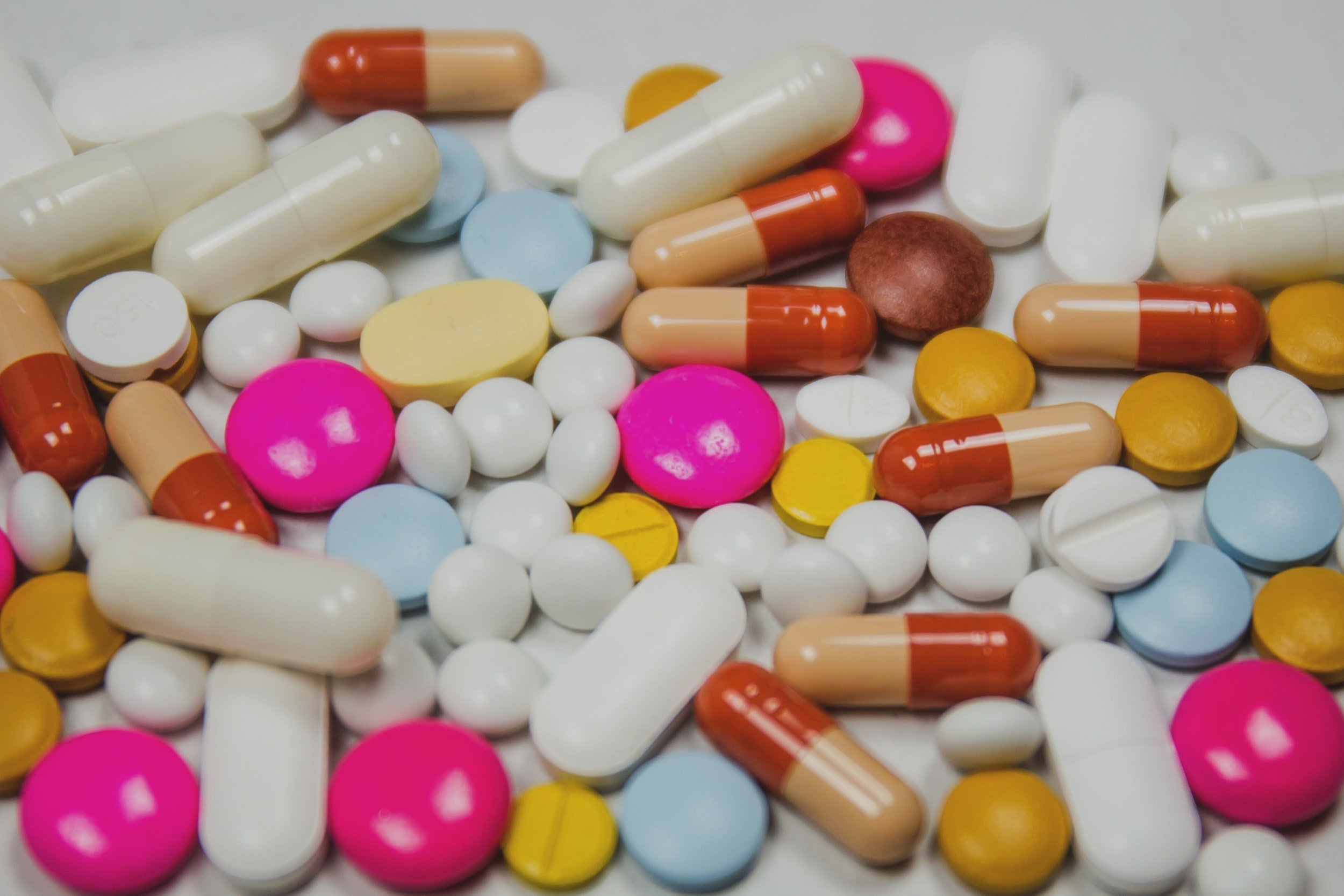
Medication
The Oregon City School District policy on medications is in accordance with the 1997 legislative changes. The following is a summary of the policy and regulations numbered 5315 and 5315%. The term "medication" refers to both prescription and over the counter (OTC) medications.
Medications will be administered during the school day if they are necessary for the child to remain in school.
All medications will be brought to the school by the parent or guardian. Students are not allowed to transport medication.
Medication will be brought to school in the original labeled container. If prescription medication, the label will include the child's name, doctor name, name of drug, dosage and frequency. If an OTC, the container will bear the original manufacturer's label and the child's name.
All prescription medication will be counted by the parent and a school staff person upon its arrival at school.
The parent or guardian will complete an Authorization for Medication form for each medication brought to school. A copy of this form is also available at your child’s school.
Herbal and dietary supplements will not be administered during the school day. Self-medication is allowed in grades 7-12 for any medication that is not a controlled substance.
For a student to self-medicate, the parent and student will sign the self-medication agreement, the parent will complete the Authorization for Medication form and the physician will sign the Authorization for Medication. These papers must be on file in the school health office prior to the student bringing the medication to school.
Students that are self-medicating will do so without any guidance or supervision from school staff.
The student who is self-medicating will carry a one day supply only and the medication will be in the original labeled container.
Students in grades K-6 may carry their own inhalers for asthma but must adhere to all regulations pertaining to self-medication.
Again, these are just the main points of the policy and regulations. If your child will be taking medication at school, you may obtain a copy of the policy and regulations, in their entirety, from your child's school
Medication Disposal Information
MRSA or Staph INFORMATION
Methicillin-Resistant Staphylococcus Aureus (MRSA or Staph) Frequently Asked Questions (FAQ)
What is MRSA? MRSA stands for methicillin-resistant staphylococcus aureus. Staphylococcus aureus, or more simply "staph," are bacteria that often live in the nose or on the skin of healthy people. When these bacteria penetrate the skin or invade other parts of the body, a staph infection may result. Staph bacteria that are resistant to the action of methicillin and related antibiotics are referred to as "methicillin-resistant staph aureus" or MRSA.
MRSA are not only resistant to all penicillin-like antibiotics, but they are often resistant to many other types of antibiotics as well. Infections with MRSA can be costly and difficult to treat because of limited antibiotic options.
In the past, MRSA has been a problem mainly in healthcare settings such as hospitals and nursing homes (healthcare-associated MRSA). Recently however, there have been many reports of MRSA infections occurring among persons in the general community without any healthcare contact (community-associated MRSA).
How common is MRSA? MRSA can be carried on the skin or in the nose without causing any disease, which is called colonization. Approximately 25-30% of the population is colonized in the nose with staph bacteria at any given time; however, the proportion colonized with MRSA is not known.
The exact number of new cases of MRSA infections in Oregon is unknown but the number of cases of MRSA in general is known to be increasing. MRSA is not a disease that requires reporting to the County Health Department but there is a surveillance project for MRSA currently run by the Oregon Department of Human Services to better understand MRSA infection patterns.
Who gets MRSA and how does it spread? Anybody can get MRSA, but MRSA infections are by far more common among persons in hospitals and healthcare facilities. Less often, MRSA can be acquired in the community and has been associated with recent antibiotic use, sharing contaminated items, having recurrent skin diseases, and living in crowded settings. Outbreaks of MRSA have been reported among injection drug users, jail inmates, and participants in contact sports such as wrestling and rugby.
As with other types of S. aureus, MRSA can be spread among people having close contact with colonized or infected people. MRSA is almost always spread by direct physical contact and not through the air. Spread may also occur through indirect contact by touching objects (e.g., towels, sheets, wound dressings, clothes, workout areas, or sports equipment) contaminated by a person colonized or infected with MRSA.
What are the symptoms of MRSA? Symptoms of MRSA infection are, for the most part, not different from any other staph infection. MRSA may manifest as red, swollen, tender skin surrounding a cut or in the form of a large pimple (boil) and may include drainage of thick white pus. A strain of MRSA that has caused community-associated infections may be more likely to result in skin infections and pneumonia more commonly than other types of staph infections. This community-associated strain of MRSA responds to a limited number of commonly used antibiotics.
How is MRSA diagnosed? Diagnosis is confirmed by identifying the bacteria grown in a laboratory culture from a sample, typically taken from a draining lesion or a swab of the back of the nose. Some health care providers will diagnose MRSA based on the appearance of the skin lesion and a known history of or exposure to MRSA.
What is the treatment for MRSA? The treatment of staph infections depends on multiple factors such as the site of infection, the severity of illness, and the antibiotic sensitivity of the infecting strain. Colonization of the skin or nose usually is not a reason for antibiotic treatment except in special circumstances. Small, localized skin pimples or boils may improve without use of antibiotics. When antibiotics are required, there are usually only a few from which to choose. MRSA bacteria are resistant to penicillin and all penicillin-like drugs. Most hospital-acquired MRSA are also resistant to numerous other antibiotics. MRSA acquired in the community usually has a broader range of potentially effective antibiotics.
What can be done to prevent staph or MRSA infections?
Cover your wound. Keep wounds that are draining or have pus covered with clean, dry bandages. Follow your healthcare providers instructions on proper care of the wound. Pus from infected wounds can contain staph and MRSA or other bacteria, so keeping the infection covered will help prevent the spread to others.
Wash your hands. You, your family, and others in close contact should wash their hands frequently with soap and warm water, especially after changing the bandage or touching the infected wound.
Do not share personal items. Avoid sharing personal items such as towels, washcloths, razors, clothing, or athletic uniforms that may have had contact with the infected wound or bandage.
Wash sheets, towels, and clothes that become soiled with hot water and laundry detergent. Drying clothes in a hot dryer, rather than air-drying, also helps kill bacteria. Make sure your wound is covered if you participate in contact sports or other skin-to- skin contact.
Keep counter tops, tubs and sinks clean. Clean bathroom counters, sinks, tubs and toilets frequently, as well as any other household surfaces that come into direct contact with your wound, your wound drainage, or your hands after you have tended to your infection.
Talk to your healthcare providers. While you are healing, tell any other healthcare providers who treat you that you have a MRSA skin infection. In the future, tell your healthcare providers that you have had a MRSA infection.
What should I do if I think I have a staph or MRSA infection? See your healthcare provider. In the meantime, keep any wounds covered with a clean dressing and wash your hands frequently to avoid spreading potential infections to others in your household.
Prepared by Jennifer Vines, MD, MPH Health Officer, Washington & Clackamas Counties October 18, 2007
Adapted from OregonDHS Public Health Division and Massachussetts Department of Public Health Web Sites:
http://www.oregon.gov/oha/PH/DISEASESCONDITIONS/DISEASESAZ/Pages/mrsa.aspx

